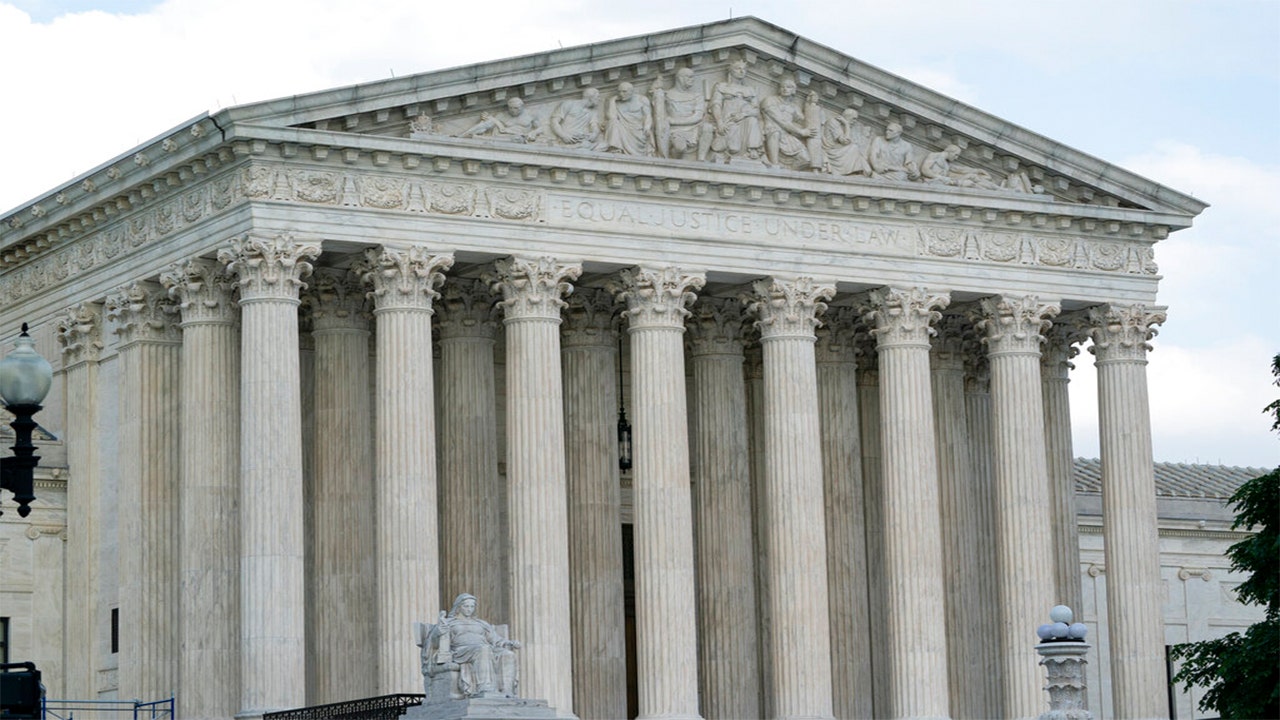
Check out what’s clicking on FoxBusiness.com.
The Supreme Court dealt a significant blow to the Biden administration’s climate change agenda, ruling Thursday that the Environmental Protection Agency cannot pass sweeping regulations that could overhaul entire industries without additional congressional approval.
The 6-3 decision limits how far the executive branch can go in forcing new environmental regulations on its own.
“Capping carbon dioxide emissions at a level that will force a nationwide transition away from the use of coal to generate electricity may be a sensible ‘solution to the crisis of the day,’” Chief Justice John Roberts said in the Court’s opinion. “But it is not plausible that Congress gave EPA the authority to adopt on its own such a regulatory scheme in Section 111(d). A decision of such magnitude and consequence rests with Congress itself, or an agency acting pursuant to a clear delegation from that representative body.”
The case stemmed from the Obama administration’s 2015 Clean Power Plan which aimed to reduce carbon emissions at power plants. The plan was blocked by the Supreme Court in 2016, and then repealed by the Trump administration and replaced by the less extreme Affordable Clean Energy (ACE) Rule.
After President Biden took office, the ACE Rule became the subject of litigation that led to the D.C. Circuit Court of Appeals vacating that rule as well as the repeal of the Clean Power Plan. The Biden EPA, however, has stated that it will not reinstate the Clean Power Plan, opting instead to develop and implement its own plan.
Former Office of Management and Budget Director and Trump chief of staff Mick Mulvaney says Biden has the power to make oil regulatory changes ‘now.’
BIDEN ADMIN PHASING OUT OLD-FASHIONED LIGHT BULBS TO SAVE ENERGY
The question of how much power the EPA has was based on a provision in Section 111 of the Clean Air Act, which grants the EPA power to set “standards of performance” for existing sources of air pollutants as long as they take into account cost, energy requirements, and non-air health and environmental impacts.
The Trump EPA, in repealing the Clean Power Plan, took the position that Section 111 only let them determine measures to be implemented at the physical power plants themselves (an “inside-the-fence-line” restriction) and not broadly-applied measures for entire industries.
Market expert Michele Schneider explains how inflation is the main disrupter to the market and how the Federal Reserve needs to address rates in the future.
CLIMATE EXPERT ON ‘PROBLEMS’ WITH BIDEN ADMINISTRATION’S RENEWABLE ENERGY PUSH
Similarly, West Virginia and other states claimed that Section 111 does not allow the EPA to go so far as to make rules that would completely reshape American electrical grids or force industries to eliminate carbon emissions altogether.
West Virginia’s argument is based on the “major questions doctrine,” which says that even though federal agencies generally have broad rule-making power as delegated by Congress through the statutes that create them, when it comes to issues of major economic and political significance to the country those statutes need to have clear language to support the agency’s action.
Without clear language, they would need new legislation that specifically grants them the power to carry out their actions.
FOX Business White House Correspondent Edward Lawrence reports on the impact of the Biden administration re-imposing ‘strict’ environmental regulations on infrastructure and energy projects.
CLICK HERE TO READ MORE ON FOX BUSINESS
The Biden EPA claimed that the major questions doctrine did not apply in this case, arguing that there was no issue of such great significance. During oral arguments, Solicitor General Elizabeth Prelogar asserted that there cannot be a major question because there is no current rule in place.
Additionally, the administration argued that there is no major question because the U.S. ended up meeting the Obama administration’s carbon goals even without the Clean Power Plan in place.
This is a developing story. Check back for more details.


